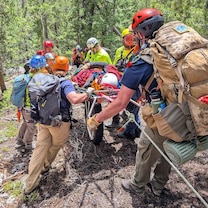July 4: The Deadliest Day on the Highway
Traffic and travel during the long holiday weekend.
July 2, 2010— -- If you're heading out of town over the Fourth of July holiday weekend: take care. An analysis by the Insurance Institute for Highway Safety has found that July 4 has been the deadliest day on the road in recent years.
The institute looked at accident statistics from 2004 to 2008 and found that on average, 148 people died in motor vehicle crashes on July 4, more than on any other day.
A typical day has an average of 114 traffic deaths.
July 4 was followed by Aug. 13 and July 15 (both averaging 143 fatalities) and New Year's Day (140 traffic deaths).
So why is July 4 so deadly? The Insurance Institute suggests that more people are on the road, driving longer distances. Alcohol plays a role too. Independence Day has the second highest rate of alcohol related crashes -- 41 percent -- eclipsed only by New Year's Day at 49 percent.
On a typical day, 31 percent of traffic deaths are alcohol related.
Stay Up to Date on the Latest Travel Trends from ABC News on Twitter
Unfortunately, this year looks like it is going to be a particularly busy one on the roads.
AAA is projecting that the number of Americans traveling this weekend will increase 17.1 percent from 2009, with approximately 34.9 million people taking a trip at least 50 miles away from home.
Like most other holidays, the vast majority of people -- 90 percent -- are expected to travel by car. The average price of a gallon of regular unleaded gas is $2.76, according to the Energy Information Administration. That's up 12 cents from the same time last year.
AAA expects it will come to the aid of 520,000 stranded motorists during the holiday weekend. Batteries can be especially affected by heat. AAA anticipates it will replace 30,000 auto batteries on the roadside, and jump start an additional 60,000 during the holiday weekend.
The average distance traveled by Americans this Fourth of July weekend is forecast to be approximately the same as last year, 617 miles. This year's spending is expected to be $644, down $50 from last year.




